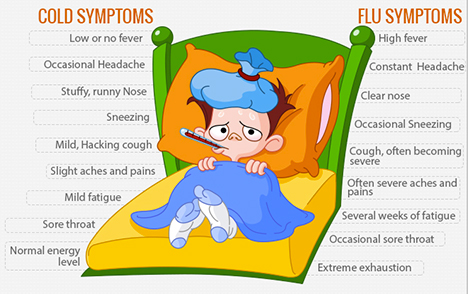
As flu season approaches it's important to review the signs and symptoms of the flu and steps you can take to help protect yourself and prevent the spread of the flu.
Influenza is a viral infection that attacks your respiratory system — your nose, throat and lungs. Influenza, commonly called the flu, is not the same as stomach "flu" viruses that cause diarrhea and vomiting.
Initially, the flu may seem like a common cold with a runny nose, sneezing and sore throat. But colds usually develop slowly, whereas the flu tends to come on suddenly. And although a cold can be a nuisance, you usually feel much worse with the flu.
Flu is a serious contagious disease that can lead to hospitalization and even death.
The CDC urges you to take the following actions to protect yourself and others from influenza (the flu):
- Try to avoid close contact with sick people.
- While sick, limit contact with others as much as possible to keep from infecting them.
- If you are sick with flu symptoms, CDC recommends that you stay home for at least 24 hours after your fever is gone except to get medical care or for other necessities. (Your fever should be gone for 24 hours without the use of a fever-reducing medicine.)
- Cover your nose and mouth with a tissue when you cough or sneeze. Throw the tissue in the trash after you use it.
- Wash your hands often with soap and water. If soap and water are not available, use an alcohol-based hand rub.
- Avoid touching your eyes, nose and mouth. Germs spread this way
- Clean and disinfect surfaces and objects that may be contaminated with germs like the flu